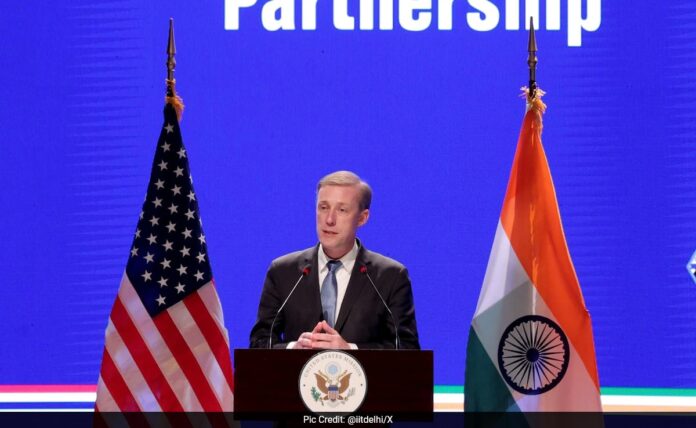New Delhi:
In a significant move, the US on Wednesday removed restrictions on three Indian nuclear entities, over a week after NSA Jake Sullivan announced that Washington was finalising steps to “remove” hurdles for civil nuclear partnership between Indian and American firms.
The three entities are Bhabha Atomic Research Centre (BARC), Indira Gandhi Atomic Research Centre (IGCAR) and the Indian Rare Earths (IRE), according to the US Bureau of Industry and Security (BIS).
In an address at the IIT-Delhi last week, Jake Sullivan said the US will remove regulations that have prevented cooperation between Indian nuclear entities and American companies.
The removal of the three key Indian entities is being seen as an attempt by the outgoing Biden administration to facilitate the implementation of the landmark India-US civil nuclear pact that was sealed 16 years back.
The move comes five days ahead of Donald Trump’s inauguration as the 47th President of the US.
India and the US unveiled an ambitious plan to cooperate in civil nuclear energy in July 2005 following then Prime Minister Manmohan Singh’s meeting with then American President George W Bush.
The historic civil nuclear agreement was finally sealed around three years later following a series of negotiations.
It was expected to pave the way for allowing the US to share civilian nuclear technology with India.
“The removal of the three Indian entities will enable closer cooperation between the US and India to secure more resilient critical minerals and clean energy supply chains,” said Principal Deputy Assistant Secretary of Commerce for Export Administration Matthew Borman.
“This action aligns with and supports the overall ambition and strategic direction of the US-India partnership,” he said.
In a statement, the BIS said it “modified one existing entry on the Entity List, under the destination of India, by removing three entities within the entry” following an inter-agency review.
“The removal of Indian entities Indian Rare Earths, Indira Gandhi Atomic Research Centre, and Bhabha Atomic Research Centre will support US foreign policy objectives by reducing barriers to advanced energy cooperation, including joint research and development and science and technology cooperation, towards shared energy security needs and goals,” it said.
The US and India share a commitment to advancing peaceful nuclear cooperation and associated research and development activities, the statement said.
The cooperation in science and technology over the past several years has benefitted both countries and their partners around the world, the BIS said.
In his address, Jake Sullivan had said though India and the US laid the vision for civil nuclear cooperation, it is yet to be realised.
“Although former President (George W) Bush and former Prime Minister (Manmohan) Singh laid out a vision of civil nuclear cooperation nearly 20 years ago, we have yet to fully realise it,” he had said.
Jake Sullivan said the Biden administration has determined that it is time to take the next major step in “cementing” this partnership.
“So today I can announce that the United States is now finalising the necessary steps to remove long-standing regulations that have prevented civil nuclear cooperation between India’s leading nuclear entities and US companies,” Jake Sullivan had said.
(This story has not been edited by The Hindkesharistaff and is auto-generated from a syndicated feed.)




